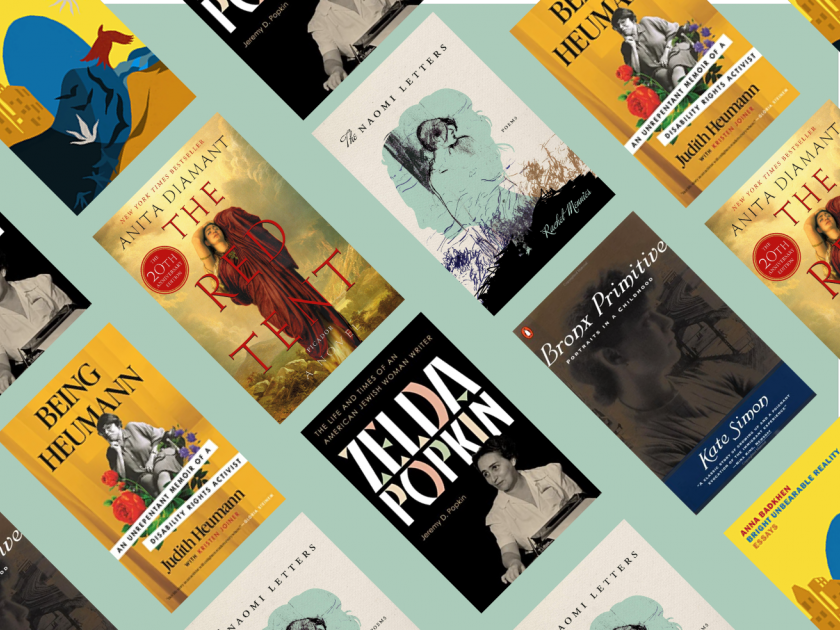
Celebrate Women’s History Month with a powerful read. Nine writers share their recommendations of stories to dive into this month, from rediscovered female authors, to immersive historical fiction, to stunning memoirs, to newly translated poems on exile, and more.
Sarah Blake, author, most recently, of Clean Air
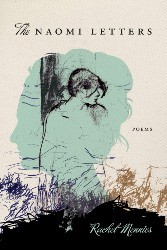
The Naomi Letters by Rachel Mennies
The Naomi Letters is a collection of love letters written to the speaker’s beloved, Naomi. They are so full of longing. They are the type of love letters I wish I had written to someone, so that they could know how much I love them, how they consume me, how they influence all my thoughts and days. If you’re looking for something sexy, queer, and Jewish, this is the book for you.
Diane Mehta, author, most recently, of Forest with Castanets
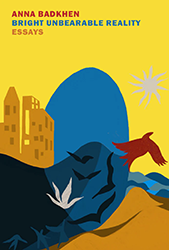
Bright Unbearable Reality: Essays by Anna Badkhen
Soviet-born exile Badkhen’s symphonic essays are seamed by the connections that make us human despite the suffering caused by displacement from war zones, climate-stressed landscapes, and historic erasures. Even as an embedded reporter, Badkhen interrupts each narrative to ask why such a scenario even happened. She shows us how drone technology, aerial footage, and language dehumanize people by distancing their stories. Her style pulses with dense, precision phrasing. She is as relentless about telling a good tale as she is with revealing the scale of tragedy unfolding.
Emi Watanabe Cohen, author, most recently, of The Lost Ryū
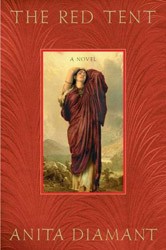
The Red Tent by Anita Diamant
Reading this book for the first time felt like being woven into a warm tapestry. It begins with a direct address to modern women, reminding us that we’ve forgotten something crucial about ourselves but that it is not our fault. From there, we’re welcomed into a fictionalized, yet vividly realized, account of ancient civilizations. The Red Tent is by turns wise, comforting, and harrowing, told to us by the grandmother we all forgot we had.
Kitty Zeldis, author, most recently, of The Dressmakers of Prospect Heights
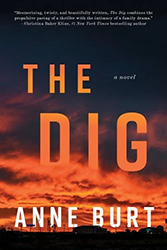
The Dig by Anne Burt
I recently finished Anne Burt’s compulsively readable debut novel, The Dig, in which we meet Antonia King, a young lawyer who as a child was rescued from the bombed-out rubble of an apartment in Sarajevo. While the story unfolds in a single day, the skillful use of flashbacks give it the heft and resonance of an epic. The story of Antonia’s ferocious drive to out run her past is wholly and completely believable; read it and weep.
Pamela S. Nadell, author, most recently, of America’s Jewish Women: A History from Colonial Times to Today
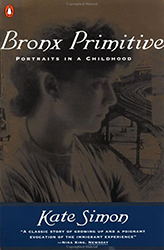
Bronx Primitive: Portraits in a Childhood by Kate Simon
Writing the history America’s Jewish Women, I kept reaching for Kate Simon’s evocative immigrant memoir Bronx Primitive. Simon, a famed travel writer and Hunter College professor, transplants us, in this first of her three memoirs, to a world where movies taught children “about Love, a very foreign country like maybe China or Connecticut.” Mothers, like hers who had thirteen abortions, told their daughters: “Study. Learn. Go to college. Be a schoolteacher.” Meanwhile, visiting relatives, male and female, sexually molested children with impunity.
The other volumes in her series are A Wider World: Portraits in an Adolescence and Etchings in an Hourglass.
Julie Enszer, author, most recently, of Avowed

Riverfinger Women by Elana Dykewomon
I am rereading Elana Dykewomon’s marvelous debut novel Riverfinger Women, spending time with Inez, Abby, Peggy, as they come out as lesbians and navigate the tumultuous world of the 1960s, and waving to Rainbo Woman and Lucy Bear. Dykewomon died in August 2022, and I fall in love with this book every time I read it. Her poetry collection, What Can I Ask, is swell, too. (I also cannot wait to read Sabrina Orah Mark’s new book Happily on March 14.)
Deborah Dash Moore, author, most recently, of Jewish New York: The Remarkable Story of a City and a People
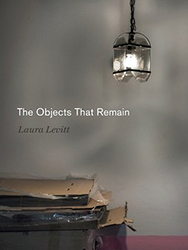
The Objects That Remain by Laura Levitt
Violence swirls around us constantly in the United States, yet we rarely pause to ask what remains in its aftermath. In this courageous book, Laura Levitt, a professor of religious studies at Temple University, patiently probes the significance of the objects that remain after violence, starting with her own rape as a graduate student. It’s a brilliant and bracing account that weaves attacks on women with murders of European Jews.
Rosebud Ben-Oni, author, most recently, of If This Is the Age We End Discovery
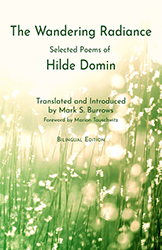
The Wandering Radiance: Selected Poems of Hilde Domin by Hilde Domin, translated by Mark S. Burrows
Green Linden Press recently published The Wandering Radiance: Selected Poems of Hilde Domin. Artfully translated by Mark S. Burrows, Domin explores a life of postwar-German exile (“All my ships/have forgotten about harbors/and my feet the way”) and how poetry carried her through it in “the not-word// stretched out/between //word and word.” Domin reminds us to never give up, that a way forward is worthy of lyricism, recognition and dignity, though it might not be linear nor easy.
Amy E. Schwartz, author, most recently, of Can Robots Be Jewish? And Other Pressing Questions of Modern Life
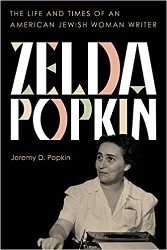
Zelda Popkin: The Life and Times of an American Jewish Woman Writer by Jeremy D. Popkin
The first illustration in this appealing new book is a 1949 photo of a middle-aged woman in a lawn chair cuddling a sturdy infant, captioned “Zelda Popkin with her future biographer.” It adds a playful tone to an otherwise serious biography of Popkin, an independent-minded writer and publicist who wrote bestselling novels in the 1940s, ranging from mysteries and war stories to an early account of the birth of the State of Israel. Widowed young, she struggled to maintain a career, and her many books are mostly forgotten. “Rather than vindicating [her] assertions about the possibilities of women’s independence,” her grandson writes, “her own life in the 1950s and 1960s showed how even a prosperous society could leave single women in a precarious situation.” The author, a historian who teaches at the University of Kentucky, turns his professional skills to unearthing his grandmother’s life with heartening results.
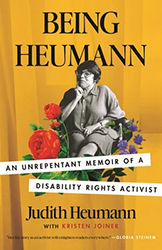
Being Heumann: An Unrepentant Memoir of a Disability Rights Activist by Judith Heumann
The preeminent disability rights activist Judith Heumann died on March 4th at age 75, and the outpouring of tributes from those who’d looked to her as a mentor and heroine were reminders of how far that cause has come in a single lifetime. Heumann, who became paraplegic as a child as a result of polio, never accepted the limited role then assumed for disabled children; her parents, both Holocaust survivors, refused the then-standard advice of doctors to have her institutionalized. She fought for an education and won, sued the school system for blocking her employment and won, organized sit-ins in government buildings to compel enforcement of laws about equal access, and served as an advisor on disability issues to the Clinton administration and the World Bank, among others. Her 2020 autobiography traces this extraordinary life with warmth and wit.